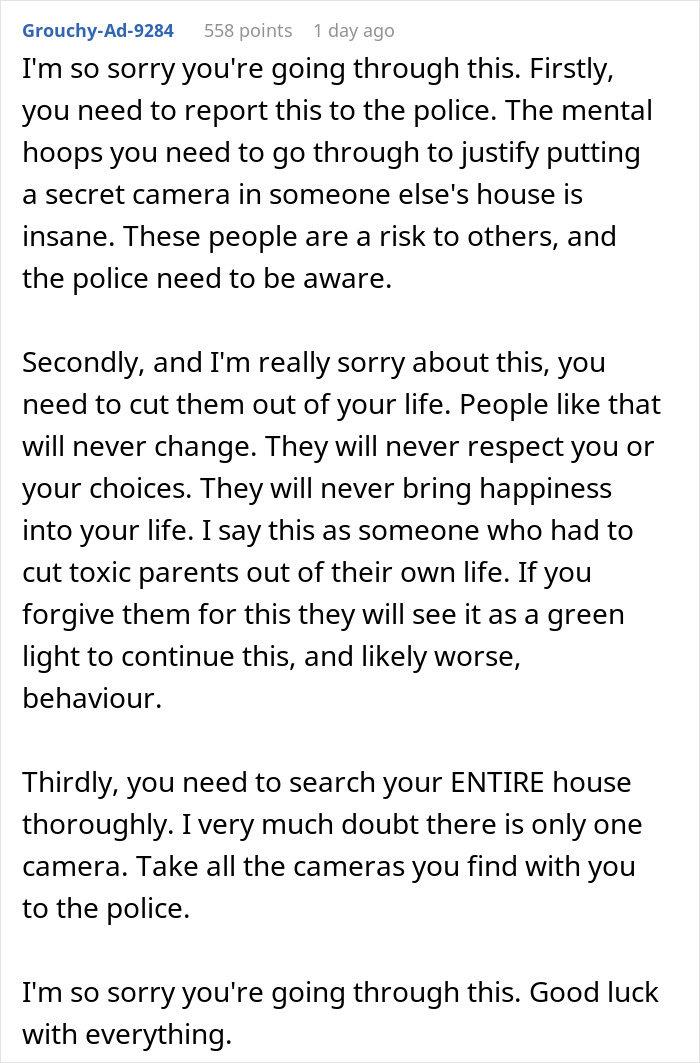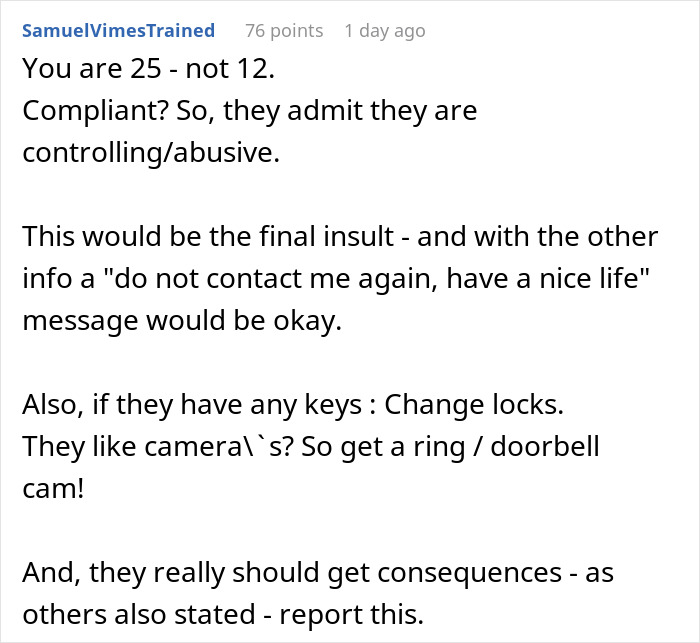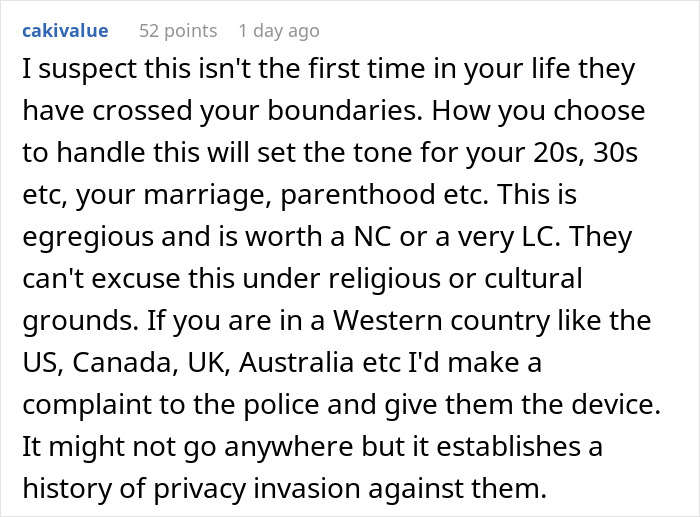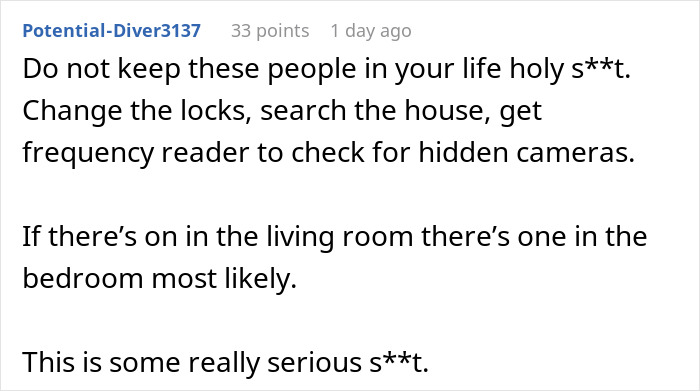Having some sort of video or audio recording device to check up on your child is pretty normal. In 2017, 75% of parents in the U.S. said they use a baby monitor. 39% of those parents said they use a monitor with a camera. It seems appropriate when the child is a toddler, but when the child is older, that becomes a serious privacy violation.
This woman, for example, was 25 when she found out her parents were keeping tabs on her with a hidden nanny cam. When her boyfriend found it at their condo, she confronted them. Their excuse was wanting to make sure she wasn’t being intimate with her boyfriend. Appalled and hurt beyond reason, the woman asked for advice online on what to do next.
A camera can be a good way to keep tabs on your child when they’re a toddler, not so much when they’re a grown adult

Image credits: perfectlab / Envato (not the actual photo)
This woman confronted her parents when she found out they’d been recording her and her boyfriend at their apartment
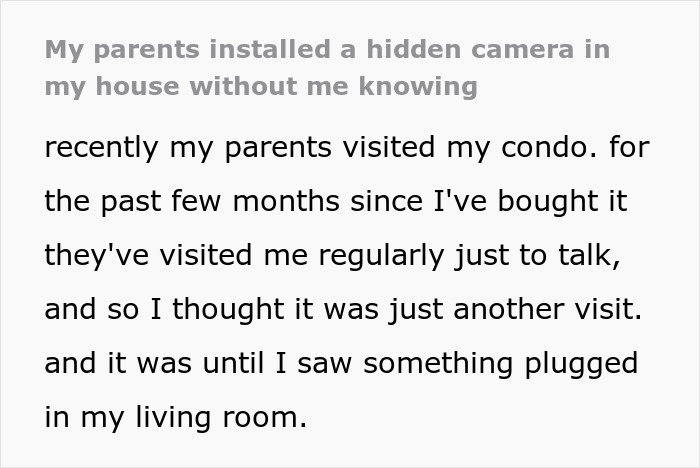
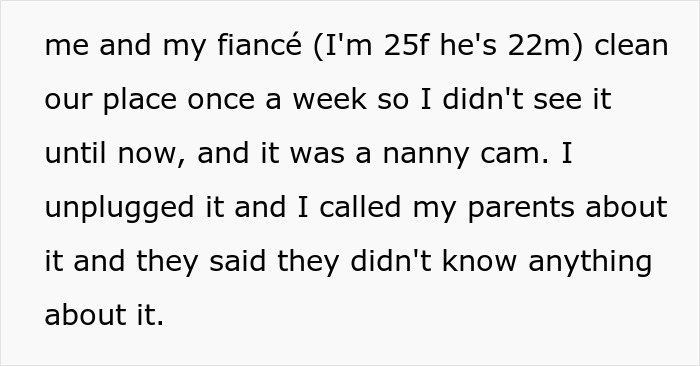


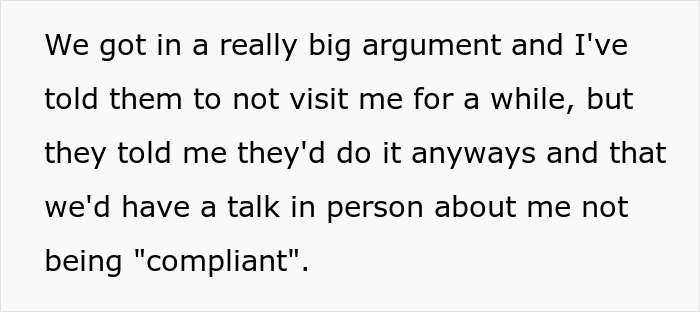


Image credits: valeriygoncharukphoto / Envato (not the actual photo)

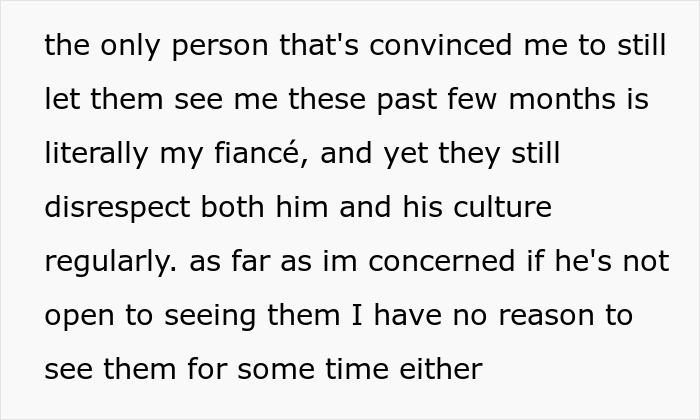
Image credits: throwawayDelay_2365
The legality of recording someone with a nanny cam depends on where they live and whether it’s video-only

Image credits: pxhere (not the actual photo)
Many people in the comments pointed out that the woman should go to the police as this is a pretty serious privacy violation. Others said that what the parents did was actually illegal since nanny cams might be illegal in some states and countries.
In the U.S., for example, nanny cams are legal in all 50 states, but they come with some strings. Recording people without their knowledge in bedrooms and bathrooms, for example, is illegal. In fact, recording anyone with audio equipment without their knowledge can be a crime.
That’s what people need to consider before getting a nanny cam or any other type of video or audio recording device. It all depends on where you live and whether you’re recording only the video or the audio too. The laws around audio recording are much tougher.
38 states in the U.S. allow people to record audio with the consent from one person in the conversation. Two-party consent is required in the other 11: California, Florida, Illinois, Maryland, Massachusetts, Michigan, Montana, New Hampshire, Oregon, Pennsylvania, and Washington. Vermont, on the other hand, doesn’t have laws that prohibit recording audio, so people consider it to be a one-party consent state.
In the UK, for example, nanny cams are legal as long as the person who’s being recorded is aware of it. “The short and sweet answer is, yes, you can get them – no, they’re not illegal, providing you put everything openly, and you tell the people that are going in that there’s a nanny cam in there,” security expert Steve Wood explained to the Daily Mail.
Recording someone in private spaces like a guest room, bedroom, or bathroom would definitely be illegal. And recording someone in a living room might be a grey area since it’s a common space. However, putting a camera in someone else’s home to spy on them changes the whole situation, probably making the parents liable to legal consequences.
Cutting contact with parents is easier said than done

Image credits: Austin Guevara / Pexels (not the actual photo)
Overbearing parents tend to violate privacy boundaries often. This case is quite extreme, of course, but some mothers and fathers who were overprotective while bringing their kids up might maintain the same tendencies once the child is an adult. Many people in the comments asked the OP why she hasn’t cut contact with her parents after repeated violations like this.
In reality, that’s easier said than done. People don’t understand the boyfriend’s stance on trying to maintain contact with the parents, yet it’s easy for strangers on the Internet to urge someone to go no-contact with their parents. Actually taking the step requires much more work and thought.
As Kate Stoddard, LMFT, told HuffPost, leaving your parents is terrifying. Still, she says, it’s better to try making the relationship healthier. “You may be living with this fear of loss, doing things out of guilt that you don’t want to do and then feeling resentful, or feeling controlled or beholden to others,” Stoddard explains.
When confronting parents about setting boundaries, it’s crucial to be assertive. Alyssa Mancao, LCSW, also recommends the “broken record” technique: “Repeat your needs clearly and concisely over and over.” She also advises people to be patient, as change in behavior doesn’t happen overnight. If nothing gives, well, then maybe going no-contact is the way to go.
The author clarified that the parents weren’t this controlling growing up, but everything changed when she got a boyfriend


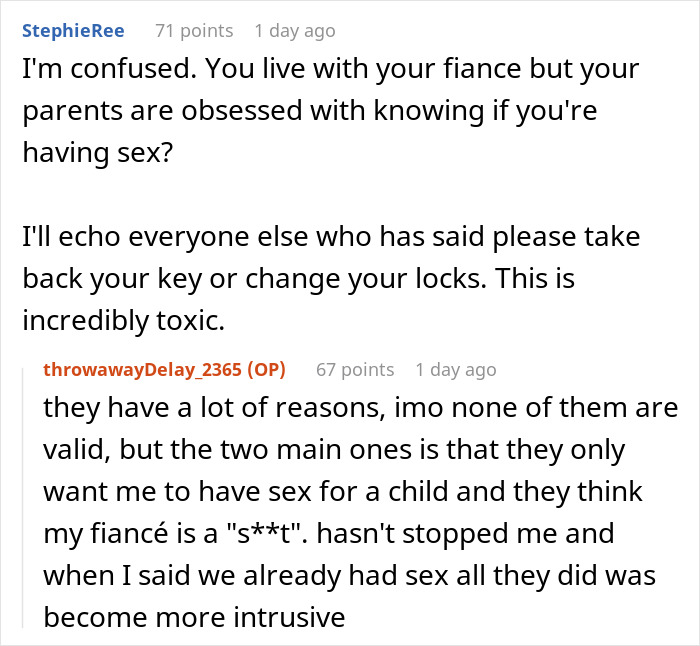
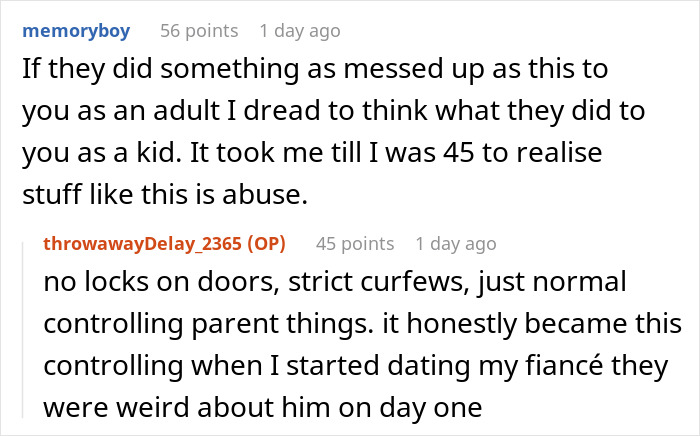
Most people were appalled at the parents’ disregard for their adult daughter’s privacy



